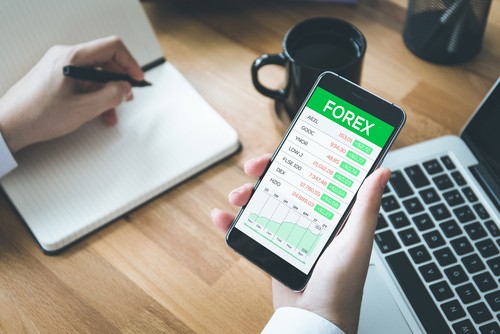One of the crucial aspects of winning a match is to understand the rules of the game. The forex market is an extensive market with a lot of people making profits every day.
Our Forex Signals
1 - month
Subscription
 Up to 15 signals daily
Up to 15 signals daily 76% success rate
76% success rate Entry, take profit & stop loss
Entry, take profit & stop loss Amount to risk per trade
Amount to risk per trade Risk reward ratio
Risk reward ratiomonth
3 - month
Subscription
 Up to 15 signals daily
Up to 15 signals daily 76% success rate
76% success rate Entry, take profit & stop loss
Entry, take profit & stop loss Amount to risk per trade
Amount to risk per trade Risk reward ratio
Risk reward ratiomonth
 Most popular
Most popular
6 - month
Subscription
 Up to 15 signals daily
Up to 15 signals daily 76% success rate
76% success rate Entry, take profit & stop loss
Entry, take profit & stop loss Amount to risk per trade
Amount to risk per trade Risk reward ratio
Risk reward ratiomonth
Lifetime
Subscription
 Up to 15 signals daily
Up to 15 signals daily 76% success rate
76% success rate Entry, take profit & stop loss
Entry, take profit & stop loss Amount to risk per trade
Amount to risk per trade Risk reward ratio
Risk reward ratioSeparate Swing Trading Group
 Up to 3 signals weekly
Up to 3 signals weekly 76% success rate
76% success rate Entry, take profit & stop loss
Entry, take profit & stop loss Amount to risk per trade
Amount to risk per trade Risk reward ratio
Risk reward ratiomonth
1 - month
Subscription
 Up to 15 signals daily
Up to 15 signals daily 76% success rate
76% success rate Entry, take profit & stop loss
Entry, take profit & stop loss Amount to risk per trade
Amount to risk per trade Risk reward ratio
Risk reward ratiotime
Eightcap - Regulated Platform With Tight Spreads

- Minimum deposit of just 250 USD to get lifetime access to all the VIP channels
- Use our Secure and Encrypted Infrastructure
- Spreads from 0.0 pips on Raw Accounts
- Trade on the Award-Winning MT4 & MT5 Platforms
- Multi-jurisdictional Regulation
- No Commission Trading on Standard Accounts

However, it’s not as simple as that to make gains in forex as a lot of learning, patience, and strategy are needed.

Forex high-frequency trading (HFT) is a strategy that can provide good returns to traders at an extremely high speed.
Computers identify the market patterns and then buy or sell the products in milliseconds based on algorithms.
Unfortunately, HFT has got an effect on forex traders, especially the retail traders. So, if indeed HFT is the way to go for forex traders, why are retail traders disadvantageous?
The big companies came up with a trading platform software that makes investment decisions in milliseconds based on the algorithm.
What it means is that the moment specific parameters are met, the software then buys or sells a particular financial activity.
On that occasion, a high-frequency trader for sure has the possibility of trading faster as well as taking advantage of the possible market trends in a matter of milliseconds.
Therefore, there’s every possibility for the trader to earn from the trade as they will tend to invest in large quantities of money.
The reason is that the trader gets a higher spread as a result of the “high-speed” trading as they buy and sells at milliseconds.
The forex market had attracted the high-frequency traders in that it offered incentives to them, and hence, the market experienced higher liquidity as well as higher trading volume.
Retail Traders on the Receiving End
Unfortunately, for retail traders, if they set foot into high-frequency trading, it’s merely like swimming in dangerous waters.
The HFT computers are basically hooked directly with the forex market to receive instantaneous data streaming and linked with the large bank lines of credit.
The transaction fees are usually negotiated to the bare bones while the ask/bid price spread being tighter than what the retail traders can ever find.
The whole thing is super-fast, seamless for only big-money players like fund traders.
The computer algo gathers news from a plethora of sources and then identifies the keywords as well as figure probabilities in milliseconds.
Now, at such a speed, when a retail trader finally gets the same information, the HFT computers would have already digested the news, came up with a position, a trade executed, and then closed out with mini profits before even a retail trader finishes reading the information.

Furthermore, the high-frequency traders are almost similar to market makers as well as specialists in some other exchanges.
As a result, they provide liquidity and then lessen volatility, which is excellent for all the traders, small and large.
With normal volatility in the forex market, HF traders provide liquidity by buying and selling the currency pairs consistently to capture inefficiency that’s available in the forex market.
They as well add liquidity and then offer some level of protection for the market makers. Unfortunately, when the volatility rears the ugly head, at the same time, everyone heads for the exit, with HF traders leading the charge.
Moreover, high frequency has as well determined the end of several broker-dealers, which, to some extent, can be taken as a positive thing as the trading fees have been significantly reduced.
Therefore, retail traders playing with the big fish is evidently not a good idea, and perhaps not their game to play.
AvaTrade - Established Broker With Commission-Free Trades

- Minimum deposit of just 250 USD to get lifetime access to all the VIP channels
- Awarded Best Global MT4 Forex Broker
- Pay 0% on all CFD instruments
- Thousands of CFD assets to trade
- Leverage facilities available
- Instantly deposit funds with a debit/credit card

Conclusion
Forex trading with the best strategy can be beneficial. However, for forex retail graders, the best strategy is to stay away from the game being played by the big fish and instead employ a different strategy.
The best alternative is for traders to compete in environments whereby they have an advantage.
At that level, retail traders don’t have to worry about market manipulation. Playing in a league that a trader is not a match, is equally like betting on losing before even the game starts.